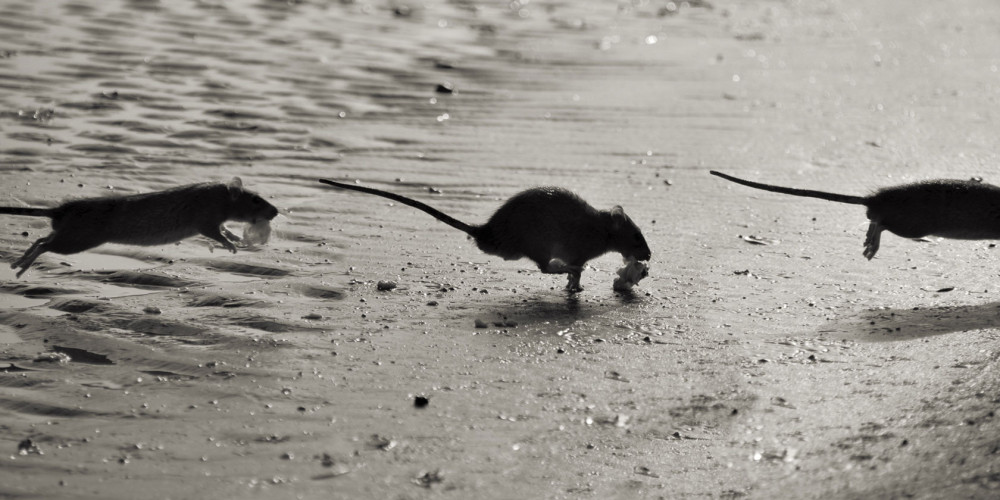When companies are built on being the best in a rat race, only rats will win

John Lanchester writes very useful books demystifying the world of finance, explaining its arcane intricacies to those who weren’t schooled in it. Sitting on a plane recently, I came across a piece by him in the New Yorker. It contained this gem:
““My father once told me about the first colleague he ever knew to go to jail. This was in the fifties, in Calcutta, where Dad was his bank’s accountant, a rank roughly equivalent to deputy. A junior banker was found to have been stealing. He did it not to be rich but to fund a life style that was slightly more lavish than he could afford, so that he could have parties at which he served imported spirits and cigarettes, and slapped his guests on the back, and said, “Only the best for my friends, none of that Indian rubbish.”
“Every case I’ve known of people stealing from the bank has been like that,” my father said. “People wanting the thing they can’t quite have—that causes more trouble than anything else.”“
This rings completely true, and I come across it every week in the upper reaches of corporate life: people wanting the thing they can’t quite have.
The root of grasping, self-centred behaviour is just that. We often think of those caught up in scams as having uniquely criminal minds, but the truth is more prosaic. The seed of corporate criminality lies in envy. That is why there is an ancient commandment against covetousness.
Envy drives so much human behaviour, and in modern corporations where people are expected to be highly ambitious and competitive in order to succeed, envy has taken on some very ugly colours. Executives look around greedily. They see the perks given to others. They make it their business to find out the pay packets of their peers and superiors. They visit their homes, and observe the furnishings. They listen to the names of restaurants others are able to afford regularly. Their ears perk up at the names of the destinations other families are taken on holiday.
And they feel a deep, burning, all-consuming envy.
The behaviour this jealousy produces is what undoes many an organization. Employees hustle to undermine their colleagues. They bitch and back-bite. They sabotage joint projects. They kiss up and kick down in order to enter the ranks of the over-rewarded elite. They take on debt in order to consume as conspicuously as their colleagues. And, most damningly, they steal.
Corporate crime, particularly in financial institutions, is fast becoming a crisis. Employees on very handsome pay packages are often caught knee-deep in scams. Unfortunately most of these cases are hushed up, for fear of damage to company reputations. People are periodically sent home, but not much happens to solve the problem.
That problem, as Lanchester Senior pointed out, is about culture. Chief executives who want to address this malady should do the harder thing, and think about long-term culture. When whole companies are built on being the best in a rat race, only rats will win. Too much concentration of reward at the top, and promotions that are whimsical and open only to connected insiders, exacerbate the problem. The best companies offer purpose and meaning to their people, not just material reward. But that’s difficult to do, so lazy leaders just use “compensation” as the metric.
The other collateral damage this reward-centred culture creates is that of stifling the really good people. Those who are actually, quietly, discreetly good at their work get shunted aside by self-promoting, manipulating types. We would have better organizations if we thought more about essentials: demonstrably good products, efficient structures, genuine competitive advantage and an ethos of collective purpose. Nurturing an individual-centred money-grab culture is leading to all sorts of dysfunction, and it won’t end well.

Buy Sunny Bindra's new book
The X in CX
here »
Popular Posts
- Why your mother was right about your anxietyOctober 12, 2025
- Use AI, but don’t lose youOctober 19, 2025
- The balance sheet that mattersOctober 5, 2025
- You are who you hang out withSeptember 28, 2025
- Born knowing the waySeptember 21, 2025















